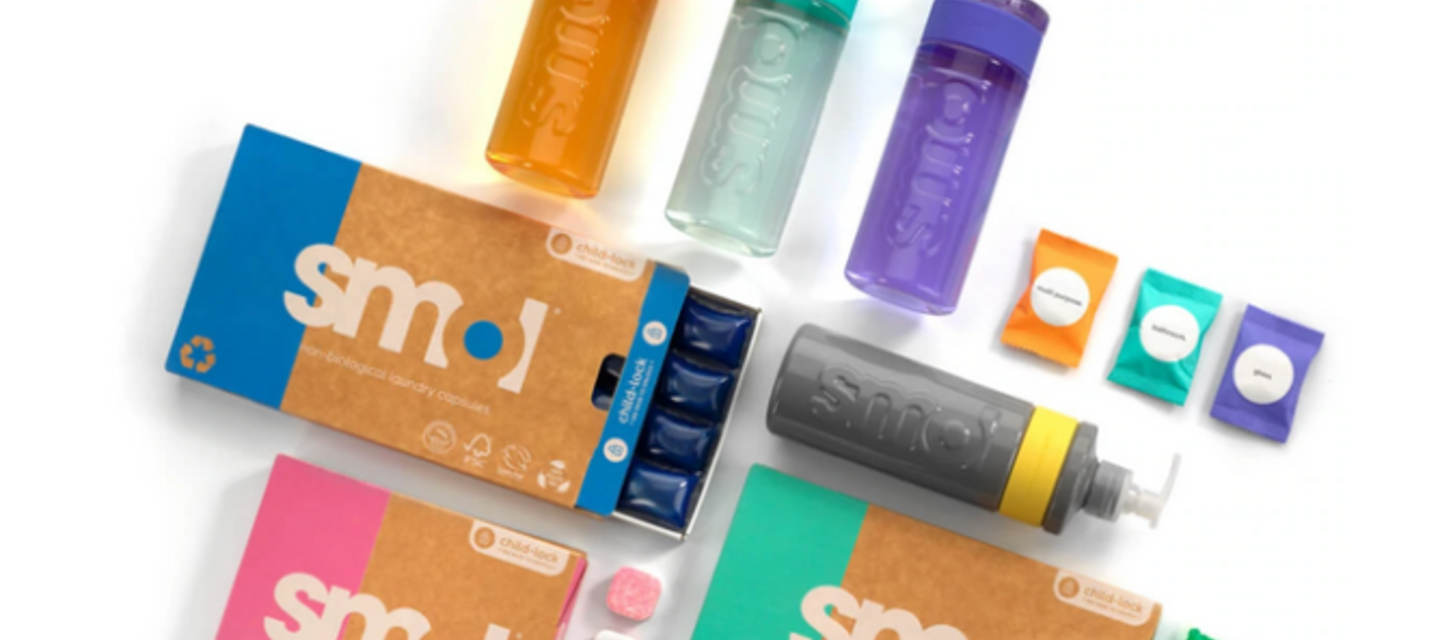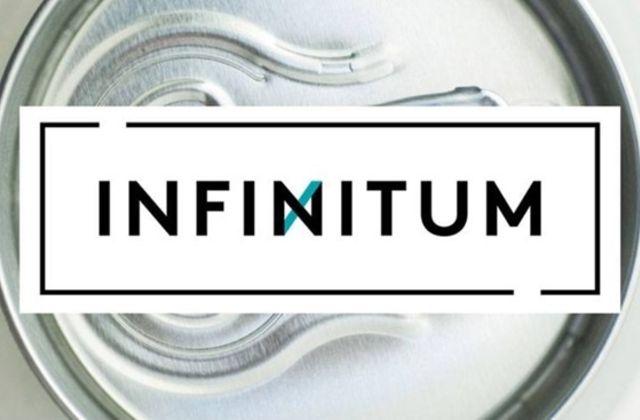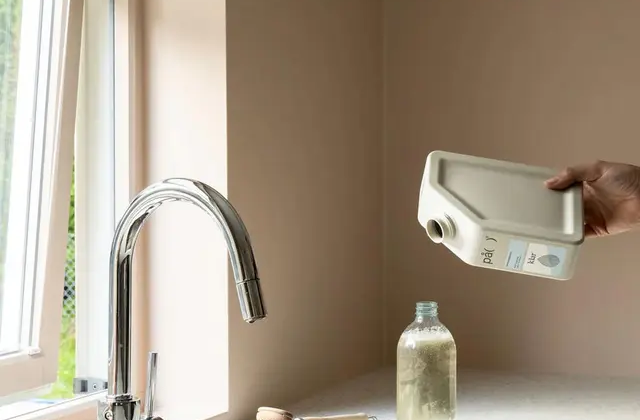What is it? Smol produces super-concentrated, refillable, returnable, and eco-efficient cleaning products (Smol, 2022a). Customers can start their subscription by filling out a survey that records their washing behavior. After this, Smol guarantees that the customers will receive their order of cleaning products at the right time without any further efforts, using product packaging that is small enough to be fit through the mailbox (Smol, 2022b, c). Technology for super-concentrating cleaning products has existed since the 1980s, however most large consumer goods companies have been hesitant to trial such business models for fear of negative perception by customers. Smol challenges this status quo through its business model, and in doing so, shows significant savings on water, transport (because products take up less space), energy and chemical additives.
Why is this important? 8.3 billion metric tons of plastic has been produced since the 1950s, half of which has been produced in the last 15 years alone (NRDC, 2021). Worldwide we produce 300 million tons of plastic each year, half of which are single-use items (NRDC, 2021). Thus, reducing the amount of plastic used in packaging is crucial in preventing unnecessary waste and consequent carbon emissions. The urgency of this is also evidenced by the recent pledge for a new UN treaty on reducing plastic waste (McVeigh, 2022). Further, recent studies have shown that the world has surpassed its planetary boundary on chemical pollution to dangerous levels (Persson et al., 2022). Therefore, reducing the amount chemicals in production of goods and services in vital.
Main resource strategy: Narrowing the loop by delivering cleaning products in super concentrated form, resulting in significantly reduced packaging, water and chemical use.
Business model aspects:
- Value Proposition: Super-concentrated cleaning products with lower levels of added chemicals, plastic packaging, water and energy use.
- Value Creation & Delivery: Smol’s products are packaged in recyclable non-plastic packaging. Smol calculates the customers consumption behavior, based on this, the products automatically arrive in the customers’ mailbox when needed (Smol, 2022c).
- Value Capture: Customers can sign up for a 9-10 wash free trial kit. This strategy can help boost customer confidence, retention rates once trust has been established (Smol, 2022a).
Business model experimentation practices: Smol co-founders are ex-Unilever employees who use their past expertise in the fast-moving consumer goods industry to shape the business model of Smol. Smol was first launched in the UK, and after having a successful launch, will now be expanded to the Netherlands and Germany in 2022.
Sustainability outcomes: At the time of writing in March ’22, since its launch, Smol claims to have saved 693 tonnes of plastic, 1,960 tonnes of chemicals and 469,483 litres of water, compared to its competitors that produce traditional cleaning products (Smol, 2022d). Smol has also conducted a life-cycle assessment that showed that each laundry capsule generates 35% less carbon than the average detergent (Smol, 2022b). The assessment also showed that 70% of the emissions of its cleaning products are based on the temperatures used by its customers while washing. So the company also runs a #washwell campaign to educate consumers on best practices (Smol, 2022d)
Sources:
McVeigh, K. (2022). World leaders agree to draw up ‘historic’ treaty on plastic waste. The Guardian. Accessed 03 March 2022 at: https://www.theguardian.com/environment/2022/mar/02/world-leaders-agree-draw-up-historic-treaty-plastic-waste
NRDC (Natural Resources Defense Council) (2021). Single-Use Plastics 101. Accessed 26 November 2021 at: https://www.nrdc.org/stories/single-use-plastics-101
Persson, L., Carney Almroth, B. M., Collins, C. D., Cornell, S., de Wit, C. A., Diamond, M. L., … Hauschild, M. Z. (2022). Outside the Safe Operating Space of the Planetary Boundary for Novel Entities. Environmental Science & Technology, 56(3), 1510–1521. https://doi.org/10.1021/acs.est.1c04158
Smol. (2022a). Home. Accessed 11 February 2022 at: https://smolproducts.com/
Smol. (2022b). Our Packaging. Accessed 03 March 2022 at: https://smolproducts.com/pages/our-packaging
Smol. (2022c). Our Story. Accessed 11 February 2022 at: https://smolproducts.com/pages/our-story
Smol. (2022d). Sustainability. Accessed 11 February 2022 at: https://smolproducts.com/pages/sustainability
***
About project Circular X
Project Circular X is about ‘Experimentation with Circular Service Business Models’. It is an ambitious research project funded by the European Research Council (ERC) which supports top researchers from anywhere in the world. Project CIRCULAR X runs from 2020-2025. The project is led by Principal Investigator (PI) Prof Dr Nancy Bocken, who is joined by a multidisciplinary team of researchers at Maastricht Sustainability Institute (MSI), Maastricht School of Business and Economics, Maastricht University. The project cooperates with businesses who want to innovate towards the circular economy.
Project Circular X addresses a new and urgent issue: experimentation with circular service business models (CSBMs). Examples of such new business models include companies shifting from selling products to selling services and introducing lifelong warrantees to extend product lifetimes. However, CSBMs are far from mainstream and research focused on experimentation is little understood. The research aims to conduct interdisciplinary research with 4 objectives:
- Advancing understanding of CSBMs; their emergence and impacts
- Advancing knowledge on CSBM experimentation
- Developing CSBM experimentation tools
- Designing and deploying CSBM experimentation labs
Funding source
This project has received funding from the European Research Council (ERC) under the European Union’s Horizon 2020 research and innovation programme, grant agreement No. 850159.
Using this information
When you refer to this case, please use the following source:
Circular X. (2022) Case study: Smol – Super-Concentrated Cleaning Products. Accessed from www.circularx.eu



